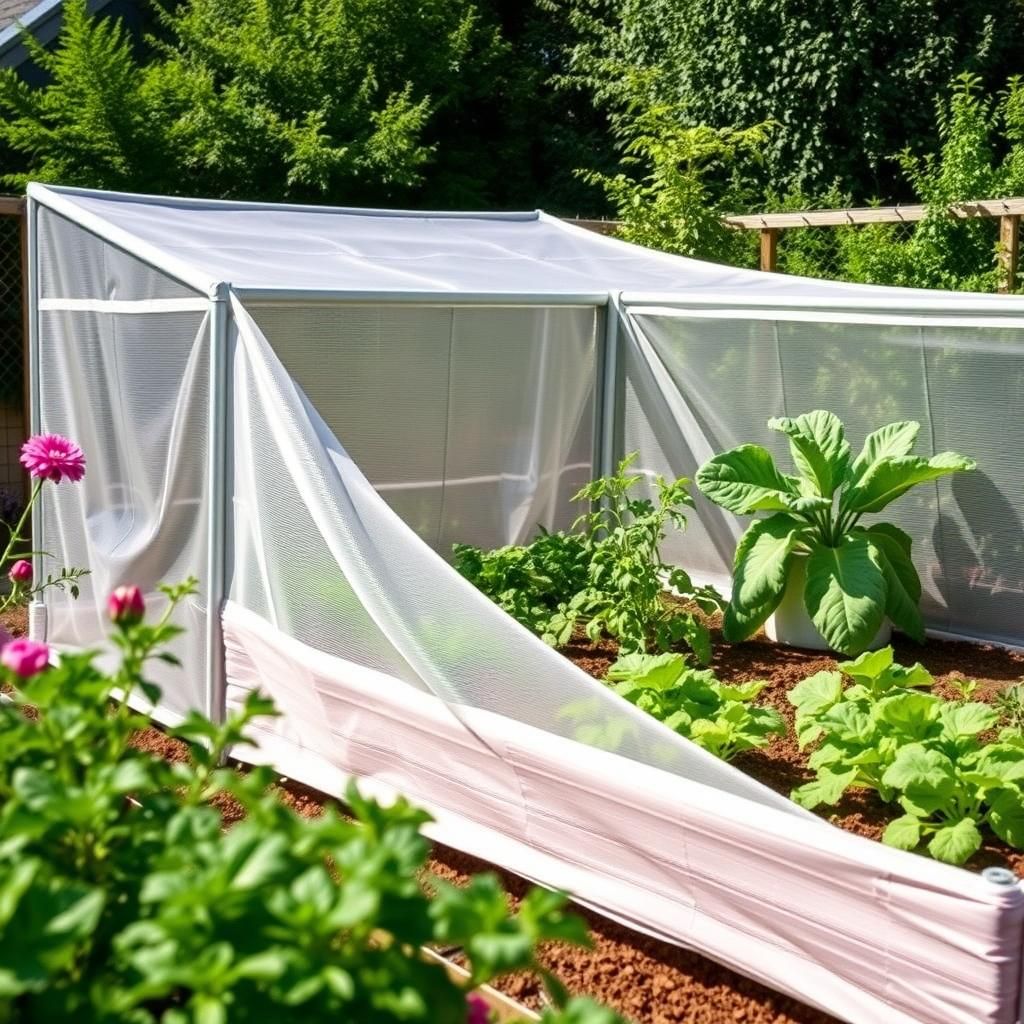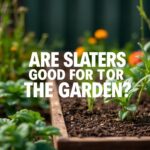10 Benefits of Creating a Fully Enclosed Vegetable Garden for Optimal Growth

Creating a fully enclosed vegetable garden can transform your gardening experience and enhance plant growth significantly. This method not only protects your crops from pests and harsh weather conditions but also promotes a controlled environment that fosters optimal growth. By investing in a fully enclosed vegetable garden, gardeners can enjoy a range of benefits, including improved soil quality, extended growing seasons, and increased yields. In this article, we will explore the ten key advantages of establishing such a garden, demonstrating how it can lead to healthier plants and a more fruitful harvest. Discover how to maximize your gardening potential today!
Benefits of a Fully Enclosed Vegetable Garden
A fully enclosed vegetable garden offers numerous advantages that enhance both plant growth and gardening experience. This type of garden not only protects your plants from harsh weather conditions, pests, and wildlife, but it also creates an optimal environment for growing a variety of vegetables. By maintaining control over the garden's environment, gardeners can better manage temperature, humidity, and soil conditions, ultimately resulting in healthier plants and a more productive harvest. Additionally, a fully enclosed design can help extend the growing season, provide a dedicated space for gardening activities, and improve the overall aesthetics of the yard.
Protection Against Pests and Wildlife
A fully enclosed vegetable garden serves as an effective barrier against pests and wildlife that can damage or consume your crops. With proper fencing or netting, unwanted animals such as rabbits, deer, and insects are kept at bay, allowing your vegetables to thrive without the threat of being eaten or destroyed. This protection increases the chances of a successful harvest and lessens the need for chemical pesticides, promoting a more organic approach to gardening.
Climate Control
Control over the climate within a fully enclosed vegetable garden is one of its key benefits. By using materials like transparent panels or greenhouses, gardeners can create a microclimate that retains heat and moisture, protecting vegetables from temperature fluctuations. This capability is especially beneficial in regions with harsh winters or unpredictable weather patterns, as it enables the growth of plants that would otherwise struggle to survive outdoors.
Extended Growing Season
With a fully enclosed vegetable garden, gardeners can achieve an extended growing season. The protective barriers help maintain a stable environment, allowing for earlier planting in the spring and later harvesting in the fall. This advantage not only increases the variety of crops that can be grown throughout the year but also results in more abundant yields, maximizing the overall productivity of the garden.
See also:
Design Flexibility
A fully enclosed vegetable garden allows for design flexibility, enabling gardeners to customize the space according to their preferences and gardening needs. From choosing the size and shape of the garden to selecting the type of enclosure materials, individuals can create a unique environment that reflects their personal style. Additionally, the enclosed space can be optimized for efficient planting layouts, maximizing the use of available resources.
Improved Aesthetics
Incorporating a fully enclosed vegetable garden can significantly enhance the aesthetics of your outdoor space. The structured design creates a visually appealing focal point within your yard, serving as both a productive garden and an attractive addition to your landscape. With the right plants and thoughtful landscaping around the enclosure, the garden can become a vibrant and inviting area that brings joy and beauty to your home.
| Feature | Benefit |
|---|---|
| Protection | Reduces pest and animal damage |
| Climate Control | Maintains stable temperature and humidity |
| Extended Season | Allows for longer planting and harvesting times |
| Design Flexibility | Customizable to fit individual needs and preferences |
| Aesthetics | Enhances outdoor beauty and landscape |
Understanding the Environmental Advantages of Enclosed Vegetable Gardens
Creating a fully enclosed vegetable garden not only promotes optimal growth for your plants but also offers significant environmental benefits. By limiting exposure to harmful pests and disease, the enclosed design minimizes the need for chemical pesticides, fostering a healthier growing environment. Furthermore, the controlled ecosystem promotes biodiversity, allowing beneficial insects and microorganisms to thrive, which can lead to improved soil health. Additionally, the enclosure helps to retain moisture and regulate temperature, ultimately contributing to a more efficient and sustainable gardening practice.
Enhanced Pest Control
One of the primary benefits of an enclosed vegetable garden is its effectiveness in providing enhanced pest control. The barriers created by the enclosure significantly reduce the likelihood of pests infiltrating the space, protecting crops from common threats such as aphids, caterpillars, and other destructive insects. By minimizing the risk of pest damage, gardeners can maintain healthier plants and potentially reduce their reliance on chemical pesticides, promoting a more sustainable gardening practice.
Improved Soil Quality
Enclosed vegetable gardens often lead to improved soil quality due to their ability to maintain consistent moisture levels and prevent erosion. The insulation provided by the enclosure protects the soil from extreme weather conditions, allowing beneficial microorganisms to thrive. This results in nutrient-rich soil that is better equipped to support robust plant growth. As a result, gardeners can enjoy higher yields and healthier vegetables, emphasizing the importance of good soil management in gardening.
See also:
Microclimate Creation
The design of a fully enclosed vegetable garden allows for the creation of a unique microclimate that benefits plant growth. The enclosure helps in regulating temperature and humidity, providing an ideal environment for growth. This microclimate can protect plants from extreme weather conditions such as frost or heatwaves, extending the growing season and offering greater flexibility in plant selection. As the plants thrive in this supportive environment, gardeners can experience increased productivity.
Water Conservation
In a fully enclosed vegetable garden, water conservation is significantly enhanced. The structure helps to limit evaporation, allowing water to remain in the soil for longer periods. Additionally, gardeners can implement efficient irrigation systems like drip irrigation or rainwater collection, further optimizing water usage. This not only promotes sustainable gardening practices but also ensures that plants receive the moisture they need for healthy growth without excessive water waste.
Encouragement of Biodiversity
Creating an enclosed vegetable garden can encourage a rich variety of biodiversity within the ecosystem. By designing the space to attract beneficial insects such as pollinators and predatory bugs, gardeners can establish a balanced environment that supports plant health. Biodiversity contributes to natural pest control and enhances soil quality, making the enclosed garden a thriving habitat for both plants and wildlife. Thus, this approach not only benefits the individual gardener but also contributes positively to the local ecosystem.
Questions from Our Readers
What is a fully enclosed vegetable garden?
A fully enclosed vegetable garden is a garden space that is completely surrounded by walls or a fence to provide a protective environment for growing vegetables. This type of garden helps to keep out pests, animals, and harsh weather conditions, ensuring that the plants can thrive without external interference.
What are the benefits of having a fully enclosed vegetable garden?
A fully enclosed vegetable garden offers several benefits, including enhanced protection from wildlife and pests, improved microclimate conditions for plants, and increased security against theft or vandalism. Additionally, it can help with weed control and extend the growing season by providing a more stable environment.
See also:
How do I build a fully enclosed vegetable garden?
To build a fully enclosed vegetable garden, start by selecting a suitable location and then create a layout for your garden beds. Use materials such as wood, metal, or plastic to construct walls or fencing, ensuring that the structure is tall enough to keep out animals. Finally, consider adding a roof or lid for extra protection if necessary, and install gates for easy access.
What plants are best suited for a fully enclosed vegetable garden?
A fully enclosed vegetable garden is ideal for a wide range of vegetables, including tomatoes, cucumbers, bell peppers, and leafy greens. When choosing plants, consider your local climate and growing conditions, and select varieties that will benefit from the controlled environment a fully enclosed garden provides.

If you want to read more articles like 10 Benefits of Creating a Fully Enclosed Vegetable Garden for Optimal Growth, we recommend you check out our Landscaping category.
Leave a Reply
Related Articles